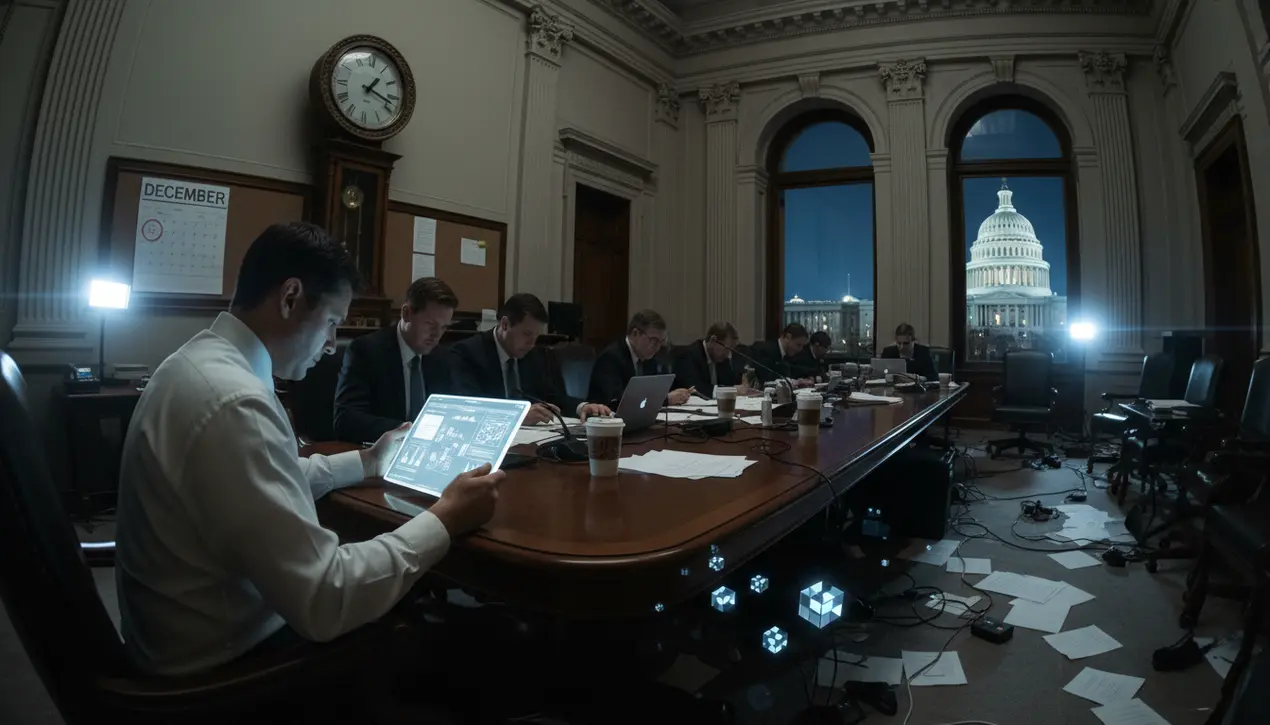
CryptoregulationPolicy Debates
State of Crypto: What Congress Has Left to Do This Year
CH
Chloe Evans
2 hours ago7 min read1 comments
As the legislative clock ticks down, the unfinished business of crypto regulation in Congress presents a critical inflection point for the entire digital asset ecosystem, a moment where the abstract world of decentralized finance collides with the concrete realities of federal lawmaking. The landscape is fragmented, with multiple committees holding competing jurisdictional claims and vastly different philosophical approaches to everything from stablecoin issuance to the foundational question of whether a digital asset is a security or a commodity.The House Financial Services Committee, under the proactive leadership of figures like Patrick McHenry, has pushed forward with ambitious frameworks like the FIT for the 21st Century Act, aiming to create a comprehensive regulatory perimeter that would grant the CFTC greater authority over crypto commodities while clarifying the SEC's role. However, this vision faces a steep uphill battle in the Senate, where the Banking Committee, chaired by the more cautious Senator Sherrod Brown, has expressed deep-seated concerns about consumer protection and financial stability, preferring a more deliberate, perhaps even piecemeal, approach.This tension isn't merely bureaucratic; it's a fundamental clash between a desire to foster American innovation and a fear of enabling the next FTX-level catastrophe. The stakes are astronomically high, as the regulatory vacuum isn't just a domestic issue—it's a global competitive disadvantage.Financial hubs from the UK to Hong Kong and the EU, with its landmark MiCA legislation coming into full force, are actively constructing clear regulatory frameworks, enticing capital and talent away from the United States. The delay on Capitol Hill directly impacts the ability of TradFi giants, who are cautiously dipping their toes into tokenized assets and blockchain infrastructure, to proceed with confidence.They need legal certainty to deploy capital at scale, and without it, the entire promise of a bridged world between traditional finance and decentralized protocols remains in limbo. Key outstanding issues beyond the broad market structure bills include the fate of central bank digital currencies (CBDCs), with vehement political opposition forming against any potential digital dollar, and the ongoing, aggressive enforcement campaign by the SEC under Chair Gary Gensler, which continues to create legal precedents through litigation rather than legislation.The path forward before the year ends is narrow, suggesting that any progress will likely come in the form of must-pass legislation, such as a budget bill, where narrower, targeted provisions—perhaps a specific regulatory framework for stablecoins, which has seen bipartisan support—could be attached as a rider. The alternative is a continued state of ambiguity, a scenario that benefits neither the innovators building the next generation of financial infrastructure nor the consumers and investors who deserve clear rules of the road. The state of crypto is, therefore, inextricably linked to the state of Congress itself: a test of its capacity to modernize its thinking and its laws for a technological revolution already underway.
#featured
#US Congress
#crypto regulation
#stablecoin legislation
#FIT21
#taxation
#AML compliance
#policy debates
Stay Informed. Act Smarter.
Get weekly highlights, major headlines, and expert insights — then put your knowledge to work in our live prediction markets.
Related News
Comments
Loading comments...
© 2025 Outpoll Service LTD. All rights reserved.